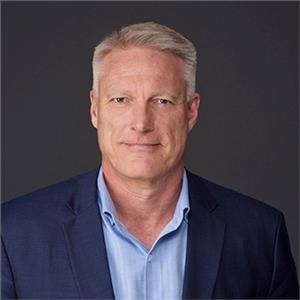Supporting a global and connected workforce with HCM
- Shawn Liew

In a continuously evolving world of work, human capital management (HCM) has become critical to the creation of productive workforces and organisational success.
With organisations now connected globally, HCM also needs to be a platform of enablement that allows companies to be always on and operating 24/7, suggested Rob Squires, VP, Regional Head of Sales, Asia Pacific and Japan, Ceridian.
Speaking exclusively to HRM Magazine Asia, he explained, “In an always-on world where we have a 24-hour view of where our employees are and how they are making contributions, whether they are employees, contract, or gig economy workers, the HCM platform has to be continuous, always enabling, and always communicating with the organisation’s talents.”
As organisations embrace the new world of work and begin to work beyond geographic borders, a global mindset is also imperative, Squires suggested.
For example, the compliance aspect of talent who is situated in another country needs to be considered, along with the appropriate regulations, from talent management to data privacy, and how the talent is paid.
“We have to enable a truly global business, particularly in relation to Asia, and this requires having a top-down view of our talent. This includes where they are and their capabilities, so we can make better decisions and maximise their talent,” Squires said.
To gain a strategic advantage, organisations then need to analyse this holistic view of their workforce and make better data-driven decisions, including in talent management. “We need to be able to better analyse where our workforce lives, the kind of people we want to attract to the company, how we approach them, and to embrace the ways employees want to work now.”
Instead of people trying to find the intelligence, Squires recommended letting intelligence or data find people. Dayforce, Ceridian’s cloud HCM platform, for example, provides data-driven workforce intelligence that allows organisations to optimise management of the entire employee lifecycle, from onboarding through to retirement.
Squires added, “We are focused on pushing intelligence out to decision makers so they can make rapid, informed, and strategic decisions that deliver quantifiable business value. We consider that to be an essential component of a successful business model in the modern world of work, and we pride ourselves on our ability to provide a compliant workforce right across the shores of Asia.”
Reimaging the employee experience by breaking the traditional payroll cycle
While the pandemic has arguably lessened the importance of salary as a tool in attracting and retaining the best talent, organisations may also do well to consider not only the amount of the renumeration, but how it is paid.
Squires observed, “Pay cycles today are based on very historical and outdated technologies. Pay cycles don’t necessarily line up with expenses. Employees faced with financial emergencies or unexpected expenses between pay periods, may experience a cashflow crunch.”
Using the analogy of online shopping, where the product is delivered within days, he asked, “Why do we need to wait two weeks or a month to get paid for work we have already delivered?”
On-demand pay essentially refers to the ability for an employee to access the money that they have already earned prior to the scheduled payout. For Ceridian, this translates to Dayforce Wallet, which designs payroll within a 24/7 always-on capacity.
Powered by a real-time continuous calculation engine, Dayforce Wallet allows the gross and net pay of employees to be calculated when they have done their work, as opposed to waiting for traditional pay cycles. A native payroll engine and the way Dayforce Wallet is designed, Squires highlighted, makes it easy to enable access to pay that employees have already worked for.
Adopting a flexible approach to attract and retain talent
With Singapore being one of Asia’s key financial hubs, it is perhaps unsurprising that the expectations placed on the nation’s workforce is higher than many other countries. The pandemic, for all intents and purposes, has only exacerbated the stress employees have been facing.

“Flexible work is the ability to be able to work 24/7 and provide your contribution at a time that’s most convenient to you.” – Rob Squires, VP, Regional Head of Sales, Asia Pacific and Japan, Ceridian.
According to Ceridian’s 2022 Pulse of Talent report, a staggering 92% of employees in Singapore reported experiencing burnout, while 79% of employees are a flight risk to their organisation. In response to how employers can help to support mental health, 52% of employees cited ‘flexibility’ as a key factor.
Describing a borderless world of work that goes beyond the boundaries of the typical 9 to 5 day, Squires said, “Flexible work is the ability to provide your contribution at a time that’s most convenient to you. We can reduce stress by being more flexible about when we work, how we work, and who we work for.”
With Dayforce, employers can help create fairer working schedules, and better match staff to demand, while also being aware of actions that require attention, such as rule violations.
“We can increase the flexibility of employees in terms of when, how, and where they do their jobs. Most importantly, we allow leaders to leverage AI to better align benefits offerings with what employees truly value,” Squires concluded.
Join Rob Squires at HR Tech Festival Asia 2022 on Wednesday, May 10, from 1.20-1.40pm (SGT) at the in-person HR Tech Festival Live, where his session titled, How Technology Can Help You Attract and Retain Top Talent, will examine the right strategy to attract and retain talent.






